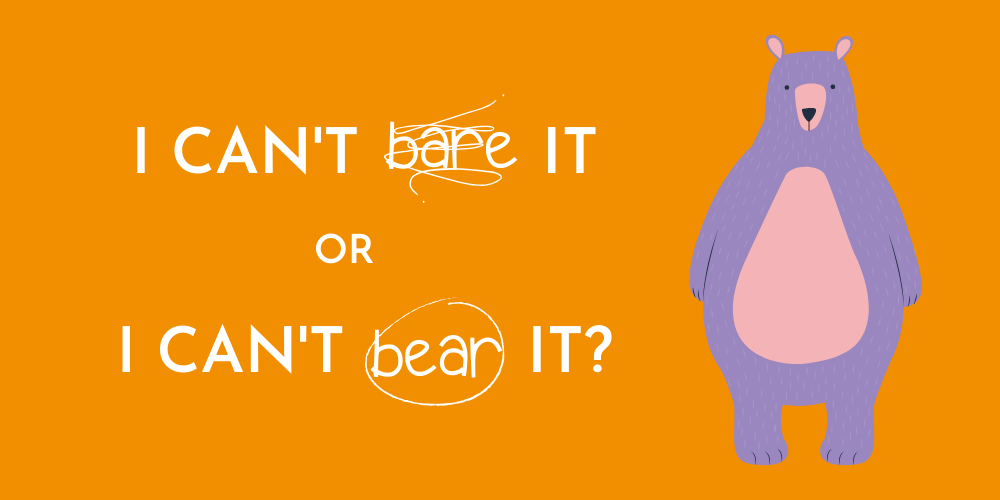
If you can never remember whether to write bear with me or bare with me; if you can?t tell the difference between I can?t bear it or I can?t bare it, then you?re not alone.
Bear and bare are homophones: words that sound the same but mean different things and are spelled differently. Most people don?t have a problem using these words when speaking, but writing them down creates a new set of problems.
In these cases, it?s helpful to create some kind of mnemonic or tool to help you remember when to use which word.
So try thinking of bear and bare this way:
The correct word in this instance is bear: I can?t bear it, or bear with me. But how can you remember that?
To bare means to uncover or expose (think to bare all). Most of the time, you won?t be telling anyone to bare with you (unless, of course, you want them to remove their clothes with you), or saying that you can?t bare it (can?t expose what?).
To bear means to support or carry or endure (physically and figuratively). Who can carry heavy things and endure long stretches of extreme weather without food? Bears.
So when you tell someone to bear with you ? to hang in there, to hold strong ? or that you can?t bear it ? you can?t endure it ? think of a bear shouldering heavy burdens or surviving long stretches of winter. Bears are strong. Bears survive. Bears can bear it.


